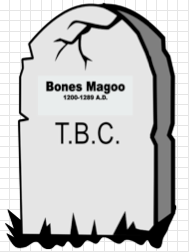The view of "soul-making" that I hold is probably
different than many who believe we humans come into this world as perfect little
God-souls who become defiled and corrupted by race consciousness manifesting as family
and other forms of socio-political conditioning. Many in the New Age Movement tend to think that we are tainted by this dark world and merely returning to our original light
form. Possibly, but I don't think so.
I increasingly tend to see each of us as very imperfect
yet amazing little sparks of God--each of us is a little soul-larva, a distinct juvenile form that many animals
undergo before metamorphosis into adults. Over time these little human
ego-eggs morph into gray ego-worms--curious, self-serving, lost, confused, and
mostly oblivious unconscious human infants, children and young adults--and even
well into adulthood. And in my view, our selfishness, unconsciousness,
confusion and oblivion are divine archetypal patterns that launch each
gray worm into the school of soul-making. Each human soul is born into a
matrix of creative chaos, an archetypal void, a living mess--and only gradually
may we transform, unless we do not.
This human condition seems to me to be a nursery filled with screaming little brats, punctuated with a few rare mature souls. We have the opportunity to grow up. Yet strait is the gate and narrow is the way that leads to an adult soul-life. Or as Scott Peck calls it, "The Road Less Traveled".
My my, isn't this a negative view of human nature? Or is it? And are not "negative" and "positive" poles necessary for a continuous current that creates energy and light? Must not a magnet attract and repel--revealing a universe that requires both the law of attraction and the law of repulsion? To ignore or exclude the blatant phenomena of tragedy, trauma and suffering is--in my view--a negative approach to life. Without the suffocating liquification process of the chrysalis, the worm remains a mere caterpillar.
This human condition seems to me to be a nursery filled with screaming little brats, punctuated with a few rare mature souls. We have the opportunity to grow up. Yet strait is the gate and narrow is the way that leads to an adult soul-life. Or as Scott Peck calls it, "The Road Less Traveled".
My my, isn't this a negative view of human nature? Or is it? And are not "negative" and "positive" poles necessary for a continuous current that creates energy and light? Must not a magnet attract and repel--revealing a universe that requires both the law of attraction and the law of repulsion? To ignore or exclude the blatant phenomena of tragedy, trauma and suffering is--in my view--a negative approach to life. Without the suffocating liquification process of the chrysalis, the worm remains a mere caterpillar.
Over time--as we journey through this
world/school--we encounter and experience many other patterns of consciousness through relationships with individual people, socio-political situations, geography, challenging ideas, various emotions, dreams, fantasies, material objects and circumstances that bring each of us ecstasy and grief---countless experiences.
It is through these variegated ups and downs that we
delightfully little ignorant soul-sparks (gray worms) gradually become more
colorful and conscious. And as I acquire color and consciousness through these
archetypal interactions, I am able to engage this didactic soul-making process consciously and intentionally. I cease to be a victim of a world out to get me. I become more aware of a
larger archetypal reality, more self-reflective, more creative and more
compassionate toward others. The divinely selfish little brat that I am may actually transform through
my myriad joys and pains, especially the pains.
It is in my current life process then that makes me conscious
and uniquely colorful. This is God growing from worm to butterfly, and it is happening
in each one of us--each of us becoming a unique image of God that has never
been before----part dragonfly and part butterfly. Or as CS Lewis suggests in Til We Have Faces, "Each of us is 'godding' in order to become 'godlings' (paraphrase). Or as
Jesus said after the outraged Jewish political party was trying to
impeach him, "We are not stoning you for any good works you might be
accomplishing, but for blasphemy, because you, who are a mere human, declare yourself
to be God.” Jesus replied, “Is it not written in your scriptures:
‘I have said you are gods ?' If God called
humans gods, then the Scripture cannot be broken..." (Gospel of
John 10:33-35)
Is any of this true? Who knows? I am still mostly a
screaming little brat. But I have--in some tiny areas--grown up, I think.







 problems, not as inherited family illnesses, but as congenital "questions posed by Fate" to his ancestors. In this view, my ancestral connection has passed along the assignment to for me to take up. Here Jung uses a developmental metaphor in order to emphasize the soul's ongoing process of continuation and completion rather than that of inflexible sickness and brokenness. In a developmental metaphor, trauma is more like an algebra assignment. I am not broken and don't need to heal anything, but am allowed to continue working on and completing the Fateful family assignments.
problems, not as inherited family illnesses, but as congenital "questions posed by Fate" to his ancestors. In this view, my ancestral connection has passed along the assignment to for me to take up. Here Jung uses a developmental metaphor in order to emphasize the soul's ongoing process of continuation and completion rather than that of inflexible sickness and brokenness. In a developmental metaphor, trauma is more like an algebra assignment. I am not broken and don't need to heal anything, but am allowed to continue working on and completing the Fateful family assignments. the only alternatives are to get well or remain sick. If I don't "get well," then I have failed and remain sick and broken. But the educational and agricultural developmental metaphors allow for progress through the ancestral journey. I am merely one student in a family endeavor. I am not defective, but merely incomplete until the assignment is finished--likely many generations from now.
the only alternatives are to get well or remain sick. If I don't "get well," then I have failed and remain sick and broken. But the educational and agricultural developmental metaphors allow for progress through the ancestral journey. I am merely one student in a family endeavor. I am not defective, but merely incomplete until the assignment is finished--likely many generations from now.